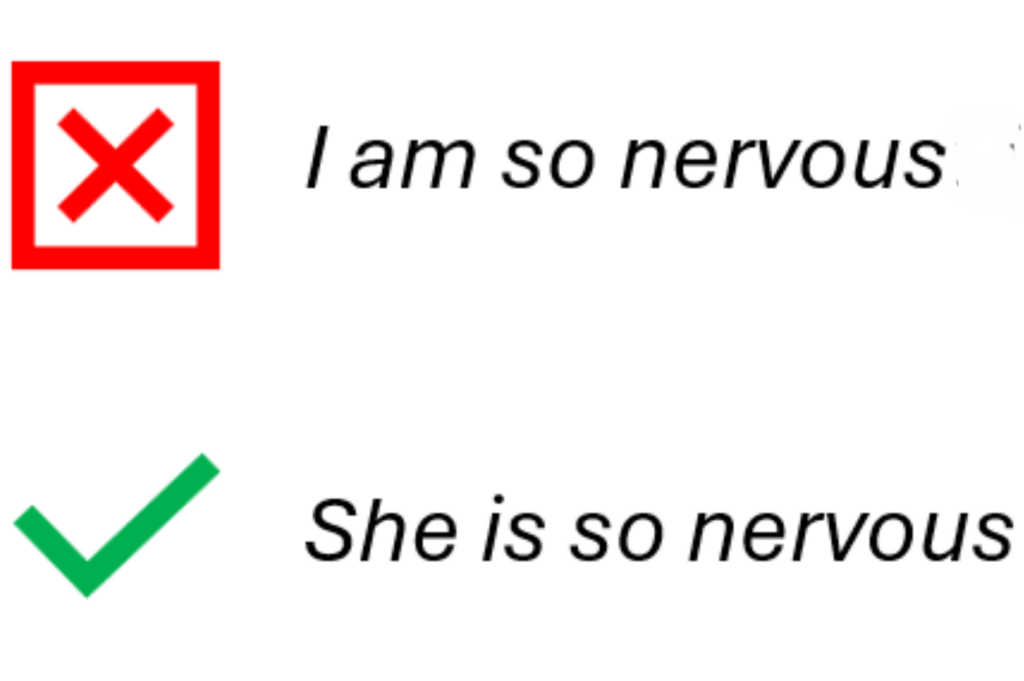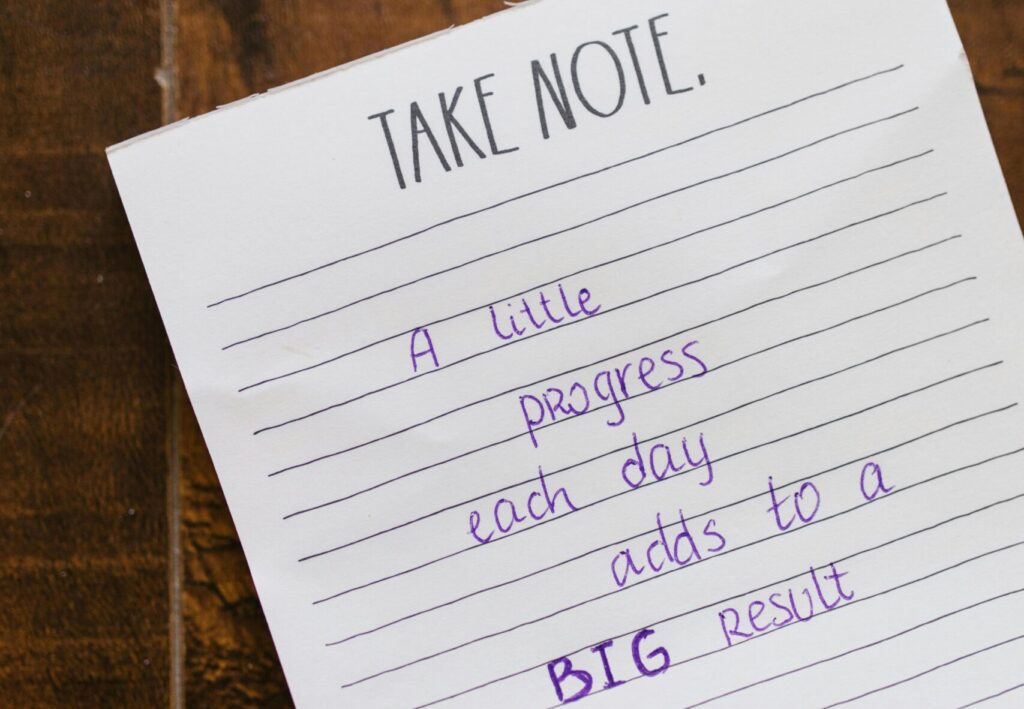
Do you need to get rid of the root cause of your social anxiety to improve it?
Before we get to third person self-talk for social anxiety, let’s talk about a debate in the social anxiety world. The debate is about whether you need to get to the root cause of social anxiety to improve. It’s a debate among professional therapists and researchers. It’s also a debate among people with social anxiety themselves.
If you’ve read my book, you know that my breakthrough with social anxiety came when I finally saw that the way I was viewing the world and my place in it was the root of the problem. As I replaced that worldview with a different one, it no longer made any sense to feel anxious.
There are many people like me who need to do some deep work to get at the source. But that doesn’t mean that there aren’t good ways to reduce your anxiety symptoms.
Today I will share a way that has research evidence showing that it can help you feel better and do more. It’s seems simple – but it works!
What is third person self-talk?
Let’s start with how we usually talk. We usually talk about ourselves in the first person. Talking to yourself in the first person means saying “I” or “we”. So, for example you would say “I feel terrified about this presentation”.
Talking to yourself in the third person means talking like you are talking about somebody else. So if your name is Jake, for example, you would say “Jake feels terrified about this presentation.”
How would third person self-talk help social anxiety?
The answer goes back to what social anxiety is in the first place. It’s an overwhelming feeling of threat, or lack of safety, whatever the social situation is. Survival instinct kicks in and your nervous system goes into overdrive trying to protect you from danger. All of the physical symptoms that you might have – heart racing or pounding, hands sweating or shaking, voice cracking – are just how your nervous system reacts when it’s under threat. And because it’s personal and depends on survival it overrides everything else and becomes all you can focus on. It’s as though you are one with the anxiety and it is part of you.
But what if you could step back a little from the anxiety, almost like you were observing yourself from the outside? Then you would have a little bit of distance between you and the anxiety. Creating that distance is the key to how this, or many other techniques for that matter, helps you reduce your anxiety.
Psychological studies about third person self-talk for social anxiety
Yes, there are actually people who study these things. A lot of them as a matter of fact. Even more surprising? There are people with social anxiety who volunteer to be put in situations that cause anxiety! Let’s take a moment to be grateful for their efforts.
Today I’m going to tell you about an important study that summarizes 7 others that all looked at the same technique in a slightly different way.
Researchers asked groups of people with social anxiety to use this technique and then compared the results to a different group who were not using the technique.
Then they induced social anxiety in various situations.
These situations will all be familiar to you! Some examples include speaking in front of a group or being videotaped while having to make a good first impression, then having your social skills rated.
They measured the effectiveness in a few different ways. These are the main ways.
- Intensity of the feeling of anxiety during or after the event (on a scale of 1 to 10, for example)
- Extent of worry about the social interaction afterward (considered a measure of shame, which is a hallmark of social anxiety)
- Visible nervousness or anxiousness during the situation to a neutral observer who was rating them
- Intensity of anticipatory anxiety (anxiety about the upcoming situation)
What were the results of using third person self-talk for social anxiety?
The most relevant results to people struggling with social anxiety are listed below.
- Less anxiety during an interaction
- Better performance as judged by an outside observer. These objective raters, who did know which group was which, rated the 3rd person self-talkers as performing better during the actual speech or interaction.
- Less shame following the situation as measured by how much self-criticism and worry they engaged in. This is sometimes called post-event processing, or rumination, and we’re sure you can relate.
- Less worry and anxiety prior to a situation
One important observation that stands out here deserves more attention. You’ve probably heard “everyone is a little nervous to give a speech”. And that probably didn’t make you feel any better. But there’s something to that, and this study showed it. Participants still rated the situation as a challenge, but less of a threat. That is a key difference. A challenge is something that’s difficult, but doesn’t exceed your ability to handle. A threat exceeds your ability to handle a situation. When you are caught up in social anxiety, you are under threat.
So how can you use your new knowledge of third person self-talk to help your own social anxiety?
It’s a simple technique and there are 2 basic steps.
- First, you have to actually put your feelings into words. So you can’t just worry. Instead of suffering through an unnamed feeling of dread and nervousness in the time leading up to a job interview, put the feelings into words.
- Second, make sure the words are in the 3rd person. So:
- DON’T SAY: “I am so worried and anxious about this interview, I can’t think about anything else”.
- INSTEAD SAY: “Jessica is worried and anxious about her upcoming job interview. She hasn’t been able to think about anything else”.
Then you can go about getting even more distance by elaborating on this more. You can say things like, “Jessica has been on interviews before and although she might feel nervous at first, she does fine after the introductions are out of the way”.
Just a tip from the collective experiences of many people I’ve worked with – make sure what you are saying is true. If it’s not true, your brain will reject it. So, for example, if you are Jessica and interviews haven’t gone well in the past, phrase it a little differently. Maybe “Jessica is worried because interviews haven’t gone well in the past, but Jessica has practiced a lot since then. Jessica also has other skills she is proud of since those interviews.” Or, whatever is true. You get the idea.
Did you try third person self-talk? How did it work for you? Post your experience in the comments, or head over to Reddit to join the discussion.
This corner of my website is dedicated to real evidence for solutions to social anxiety – backed up by science.
There is no one right answer for social anxiety. I came to my own breakthrough with a combination of various therapies, ancient wisdom, and plenty of trial and error. But even some of what I figured out on my own has a name – and scientific backing.
Whether you are working with a therapist or scouring social media forums, you want answers you can trust. If you want to stay up to date on science and social anxiety, this is the place for you.

